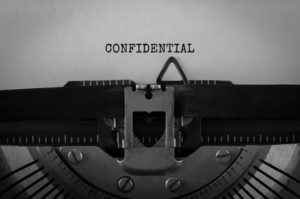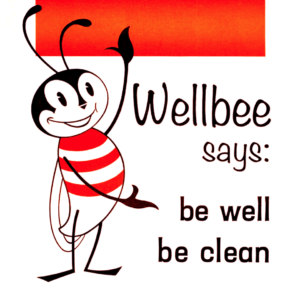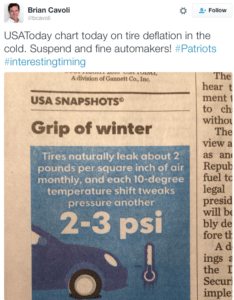 If you were to design and execute the worst possible domestic violence policy you could think of, it would likely look like how the NFL is handling the Ezekiel Elliott case.
If you were to design and execute the worst possible domestic violence policy you could think of, it would likely look like how the NFL is handling the Ezekiel Elliott case.
I’ve read all the public legal documents on this case.
Hundreds of pages. It is difficult to convey how nauseated with anger and disgust I am with how the NFL has handled this matter.
Most of the writing on about the Ezekiel Elliott case involves the legal issues. Or the sordid details. Understandable, as the NFL decided to make this news.
Very little of it focuses on the real and sick harm the NFL is doing to many people with their everything is a hammer approach.
The only way this ends up getting changed is if the NFL and its owners decide to change it, and so I am writing this specifically for that audience first. The NFL is made up of many, many people, and I am hoping to appeal to ones that can change this.
As an attorney for many years, I have worked to craft policies for large corporations, and I know that can be hard to do well. I am also very familiar with domestic violence as a subject from the prosecution, defense, and real-world perspectives. I’ve written about NFL discipline issues since 2006, as fans have many questions about these types of cases.
The NFL is committed to holding the players to “a higher standard” than the legal process but what they are doing is ruinous to all.
Fully predictable that the Ezekiel Elliott case would be awful for all.
Before you read the following, I strongly suggest reading the previous piece I wrote for some additional context:
Ezekiel Elliott and the NFL Domestic Violence Policy, August 11, 2017
I wrote this the day the Ezekiel Elliott suspension was announced by the NFL’s “confidential letter,” which of course, wasn’t. The NFL personal conduct policy has always been problematic because how poorly the NFL churns one-sided investigations, issues punishment.
That the NFL is terrible at doing investigations makes it worse when they do them for sensitive topics like domestic violence.
In the piece, I noted that the relatively new way the NFL handles domestic violence issues is expensive, overly-long, privacy-invading, deterrent to reporting, and provides no real and fair mechanism for the player to show innocence.
I then explained why and how the Ezekiel Elliott case would end up as a disaster.
Just the description in the letter of the process was an obvious sham to me. Sounded official and legal and neutral to a non-legal person but was just a thrown together PR-focused process. With more information available now, the process is far worse than the original letter suggested.
The following is why the NFL Domestic Violence policy is counterproductive and ruinous to pretty much every stakeholder involved using the Ezekiel Elliott case as the latest example. Here is a link to Elliott’s Petition to Vacate Arbitration Award and related documents. (Update 9/6/17: All document links are updated to the excellent The Sports Esquires website)
Being able to see these details allows for a further exploration of how terrible the NFL’s handling of this has been.
Bad for Survivors of Domestic Violence.
Hostile Questioning.
If I were representing an abused person, I would not have them cooperate with the NFL. Why?
How does it help that person to cooperate? Does an NFL suspension of a player help them at all? Does offering privacy-invading details of their life help them?
Apparently, in the Ezekiel Elliott case, the woman claiming abuse was interviewed by the NFL investigator two times formally, with recording and transcript, and four times with follow-ups.
(Though her name is widely and publicly shared, including by her, I do not care to do that here because it is not necessary for my points. There are two people who know for sure what happened. Even if her account is inconsistent and not credible and threatening to Elliott, it is also possible that she was abused. Whatever is the situation, I feel bad that the NFL policy even means I am discussing this).
Usually, those of us on the outside do not see the type of questioning. This time we can.
I found the nature of the questioning of the woman to be hostile and privacy invading. I don’t think it was intended that way but people do all sorts of things in life they don’t intend to be abusive but are. It certainly wasn’t as hostile or thorough as it would be from a defense perspective, but that doesn’t mean it wasn’t awful in every respect.
The woman’s credibility in the case is an essential point to Elliott’s discipline. So the NFL questioned her.
For no benefit to her.
In previous NFL discipline cases, non-lawyers being questioned by lawyers have found the experience to be very intimidating. In both Deflategate and Bullygate, non-lawyers expressed how intimidating the questioning was, how they felt like they were being treated like liars and that the lawyers ignored important context if it didn’t fit what the NFL’s narrative.
As a lawyer, I’ve been made available for questioning in legal proceedings and even with nothing at stake, the process isn’t particularly comfortable.
Privacy Invading.
As I noted, because suspension is the punishment, Ezekiel Elliott’s case and the credibility of the witnesses is now news to teams, fans, fantasy football, betting.
The woman who is the subject of this action revealed extremely personal information about herself. More personal than I know about pretty much anybody. Ezekiel Elliott and other witnesses revealed private information about himself and her as well.
The NFL has tried to shift responsibility to the NFLPA for “victim blaming.” No, the entirety of this debacle of a policy is fully and completely on the NFL.
The NFLPA’s sole purpose is to serve its members. The ethical obligation for the NFLPA lawyers is to zealously represent their clients. They are doing that.
The NFL’s job is to football. They do have PR concerns, and the hastily put together domestic violence policy was created as part of a series of PR disasters. Unfortunately, PR-driven policies coming from crisis usually are bad. Like this is.
In the real legal cases instead of this sham procedure, there are ways where privacy-invading information can be shielded from wide view. Sometimes a resolution can be crafted that avoid tough questioning.
Takes Away Agency of Domestic Violence Accusers.
You might find it surprising that the woman accusing Ezekiel Elliott of abusing her wants him to get help, and told the NFL investigator that she did not want him suspended. Elliott at various points in his testimony suggests that he wanted the woman to get help.
In the legal system, each situation can be tailored for the specific dynamics of the people involved. Some jurisdictions do it better than others, and that legal and other experts struggle with these topics would suggest that sports leagues would likely do worse.
Punitive-focused approaches are typically not recommended for employers as they take away control of the abused and may deter reporting.
If you look at every single public discipline the NFL has got involved with relating to domestic violence, their actions have made it worse in significant ways to the person abused.
Do they not care? Do they not see this?
Bad for Players.
The NFL has spent millions of dollars and a great deal of time trying to buttress their conclusions in the Ezekiel Elliott case. The NFL argued in the Deflategate case that they are entitled by the process to do whatever the commissioner wants.
There is no way within the system to prove innocence. If the NFL lessens sentences or doesn’t invoke discipline, it is largely random and at their choice.
Some people want to put the blame and onus for fixing the discipline system on the players. To me, that is absurd. The NFL adopted the domestic violence policy unilaterally and then ignored the words of the policy. Does it matter what the specific words of the CBA and the rules are if Goodell at the end of the day claims he can do whatever?
Health. Safety. Fair process. Sensitive handling of issues like addiction and domestic violence. Following specific rules that apply to specific situations.
Why is it that the NFLPA has to fight so hard for these things that the NFL should want for themselves?
The NFL CBA had its general commissioner-strong structure for a long time. And though there were disputes over the years, there has been nothing like the strong use of power that started after the 2011 CBA. Prior to that CBA, though Goodell expanded the use of his powers, it was mostly for criminal actions with extreme cases. After it was signed, he started using his powers in far more expanded ways. Unilaterally. Making up new rule violations nobody had ever known were an issue. Suspending players indefinitely with no guidance for reinstatement.
I have suspected for a long time that the NFL has intentionally been unreasonable and unfair with their discipline as a bargaining chip to make more money in the next CBA. If you have studied their NFL’s actions over the years as it relates to labor, their general practice is to use maximum power and leverage, even if in the short term it hurts the product on the field.
Elliott Process Is Bad for Teams and Owners and Fans.
If you have a process that makes it impossible to prove innocence, then every player and team is at risk of an intentionally compromised product that fans pay for.
In a normal legal process, you do not have the thrown together procedure that the NFL has. Each time they make an ad hoc process that has its own faults. Behold my 2015 graphic I made to illustrate this:

In the Ezekiel Elliott case, the ad hoc process appears to be as follows:
One Main Investigator Taking Info Not Under Oath. Former prosecutor women who have prosecuted sex crimes are running the program so somehow that makes some sort of cover for a bad process.
Prosecutors tend to see things a prosecutors do, and also what they are being asked to do for the NFL is not typically what prosecutors do in their day-to-day work. It is a pretend legal process.
A former prosecutor, NFL employee Kia Roberts questioned the witnesses. The woman who is the subject of the abuse claim was interviewed two times formally, four times in follow-up questions.
Notably, Roberts did not find the woman claiming abuse to be a credible witness. And this isn’t even with opponent questioning. This conclusion was not in the final report. Nor was that shared in the suspension letter that was made available publicly.
In an actual legal system, more than one person hears the complainant’s testimony. If it ends up going to trial, an entire jury hears it.
In an actual legal system, more than one person cross-examines the complainant.
Kia Roberts, the only person who interacted with Elliott’s accuser recognized her significant credibility problems and would not have recommended discipline. She had in her notes an entire document with inconsistent statements. And notably, none of this was under oath testimony, like it would be in a real legal setting.
Report Manufacturing. Both Kia Roberts and another former prosecutor working for the NFL, Lisa Friel jointly wrote a report. The report left out a lot of information that favored Elliott. The report did not state Roberts’ concern with the credibility of the accuser nor did it contain her recommendation based on that for no discipline.
The NFL hired experts to opine on things that would not be persuasive testimony in a court room, despite all the discussions of metadata. That you see pictures of injuries does not say how and when and who if any caused the injuries. The NFL experts noted the limitation of their testimony.
This is typical of how the NFL puts their reports together. They put a lot of shaky information together and then decide the quantity of it makes it somehow persuasive.
Panel of Advisors. Then there was a meeting with Lisa Friel and the panel of four advisors. I’m not sure what the panel of advisors was supposed to do. How do you judge the credibility of evidence if you don’t see and hear the witnesses? They just read a report written in the attempt to withstand the inevitable litigation. Kia Roberts was not invited to this meeting despite being the person who did the actual investigation and would not have recommended discipline.
Goodell Drops the Hammer. The only direct witnesses are the parties involved. There are some manufactured claims that this or that shows something happened, but after reading all the information, it all equals zero. The threats she made to his career do not mean it didn’t happen, nor does it mean it did. There is no way with the evidence that Goodell had at his disposal that he should be able to say there was credible evidence that abuse occurred. By the nature of his own process where the only person who talked to the key witness thought she wasn’t reliable. Or in any process.
NFL Flunky Handles Arbitration Appeal. The NFL does not use a neutral arbitrator. When they have, they usually lose so they avoid that. For those who think a neutral arbitrator could fix this horrible process, they can’t. A neutral arbitrator can’t fix intrusive investigations, deterring reporting, the time and money and destructive power of the NFL process. Maybe it would overrule the worst of it but not before it hurt peoples’ lives without care.
The hearing officer, Harold Henderson rubber stamped Goodell’s decision, indicating in a relatively cursory way, “the record contains sufficient credible evidence to support whatever determinations he made.”
The Domestic Violence Policy is Bad for the NFL and Basic Decency.
The NFL is good at football. The further they get from football, the worse they tend to get. Employers are much better at directing employees to helpful resources and education. That’s not very satisfying to those looking to exact vengeance for players they don’t like, but I’m not sure how six game suspensions do that either.
I wrote this with the intention of expressing my disgust for the entire record and NFL process being used in the Ezekiel Elliott case. As that is something I think is lost when people are talking about how many games he plays and when and legal arguments between lawyers.
I loathe all the unintended messages and lessons the NFL is amplifying with how poorly they have handled this. It makes me sick.
My intended message: Fair processes that treat people like human beings matter, even if you don’t care about the people involved this time. Sometime it may matter to you.
All that said, if you have questions about this or legal questions on how this is going to be handled, please put questions or comments below. It is better for everyone if I do this here versus trying to do it on Twitter. Please, nothing abusive to anyone or I will not approve it through moderation. I like my comment section to be a resource to others and typically it is. Sometimes there is a delay in approval because I do it all manually. Thanks.










